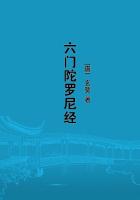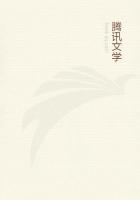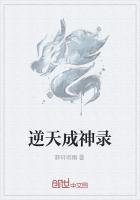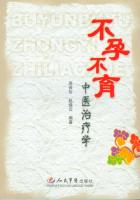The day before we had seen a good battle in the clouds when the Boche plane had crashed, and a Transvaal machine-gun officer brought the report that the British airman had been Pienaar. 'Well done, the old _takhaar!' he cried, and started to yarn about Peter's methods. It appeared that Peter had a theory that every man has a blind spot, and that he knew just how to find that blind spot in the world of air. The best cover, he maintained, was not in cloud or a wisp of fog, but in the unseeing patch in the eye of your enemy. Irecognized that talk for the real thing. It was on a par with Peter's doctrine of 'atmosphere' and 'the double bluff' and all the other principles that his queer old mind had cogitated out of his rackety life.
By the end of August that year Peter's was about the best-known figure in the Flying Corps. If the reports had mentioned names he would have been a national hero, but he was only 'Lieutenant Blank', and the newspapers, which expatiated on his deeds, had to praise the Service and not the man. That was right enough, for half the magic of our Flying Corps was its freedom from advertisement.
But the British Army knew all about him, and the men in the trenches used to discuss him as if he were a crack football-player.
There was a very big German airman called Lensch, one of the Albatross heroes, who about the end of August claimed to have destroyed thirty-two Allied machines. Peter had then only seventeen planes to his credit, but he was rapidly increasing his score. Lensch was a mighty man of valour and a good sportsman after his fashion.
He was amazingly quick at manoeuvring his machine in the actual fight, but Peter was supposed to be better at forcing the kind of fight he wanted. Lensch, if you like, was the tactician and Peter the strategist. Anyhow the two were out to get each other. There were plenty of fellows who saw the campaign as a struggle not between Hun and Briton, but between Lensch and Pienaar.
The 15th September came, and I got knocked out and went to hospital. When I was fit to read the papers again and receive letters, I found to my consternation that Peter had been downed. It happened at the end of October when the southwest gales badly handicapped our airwork. When our bombing or reconnaissance jobs behind the enemy lines were completed, instead of being able to glide back into safety, we had to fight our way home slowly against a head-wind exposed to Archies and Hun planes. Somewhere east of Bapaume on a return journey Peter fell in with Lensch - at least the German Press gave Lensch the credit. His petrol tank was shot to bits and he was forced to descend in a wood near Morchies.
'The celebrated British airman, Pinner,' in the words of the German communique, was made prisoner.
I had no letter from him till the beginning of the New Year, when I was preparing to return to France. It was a very contented letter. He seemed to have been fairly well treated, though he had always a low standard of what he expected from the world in the way of comfort. I inferred that his captors had not identified in the brilliant airman the Dutch miscreant who a year before had broken out of a German jail. He had discovered the pleasures of reading and had perfected himself in an art which he had once practised indifferently. Somehow or other he had got a _Pilgrim's _Progress, from which he seemed to extract enormous pleasure. And then at the end, quite casually, he mentioned that he had been badly wounded and that his left leg would never be much use again.
After that I got frequent letters, and I wrote to him every week and sent him every kind of parcel I could think of. His letters used to make me both ashamed and happy. I had always banked on old Peter, and here he was behaving like an early Christian martyr -never a word of complaint, and just as cheery as if it were a winter morning on the high veld and we were off to ride down springbok.
I knew what the loss of a leg must mean to him, for bodily fitness had always been his pride. The rest of life must have unrolled itself before him very drab and dusty to the grave. But he wrote as if he were on the top of his form and kept commiserating me on the discomforts of my job. The picture of that patient, gentle old fellow, hobbling about his compound and puzzling over his _Pilgrim's _Progress, a cripple for life after five months of blazing glory, would have stiffened the back of a jellyfish.
This last letter was horribly touching, for summer had come and the smell of the woods behind his prison reminded Peter of a place in the Woodbush, and one could read in every sentence the ache of exile. I sat on that stone wall and considered how trifling were the crumpled leaves in my bed of life compared with the thorns Peter and Blaikie had to lie on. I thought of Sandy far off in Mesopotamia, and old Blenkiron groaning with dyspepsia somewhere in America, and I considered that they were the kind of fellows who did their jobs without complaining. The result was that when I got up to go on I had recovered a manlier temper. I wasn't going to shame my friends or pick and choose my duty. I would trust myself to Providence, for, as Blenkiron used to say, Providence was all right if you gave him a chance.
It was not only Peter's letter that steadied and calmed me. Isham stood high up in a fold of the hills away from the main valley, and the road I was taking brought me over the ridge and back to the stream-side. I climbed through great beechwoods, which seemed in the twilight like some green place far below the sea, and then over a short stretch of hill pasture to the rim of the vale. All about me were little fields enclosed with walls of grey stone and full of dim sheep. Below were dusky woods around what I took to be Fosse Manor, for the great Roman Fosse Way, straight as an arrow, passed over the hills to the south and skirted its grounds. I could see the stream slipping among its water-meadows and could hear the plash of the weir. A tiny village settled in a crook of the hill, and its church-tower sounded seven with a curiously sweet chime.

